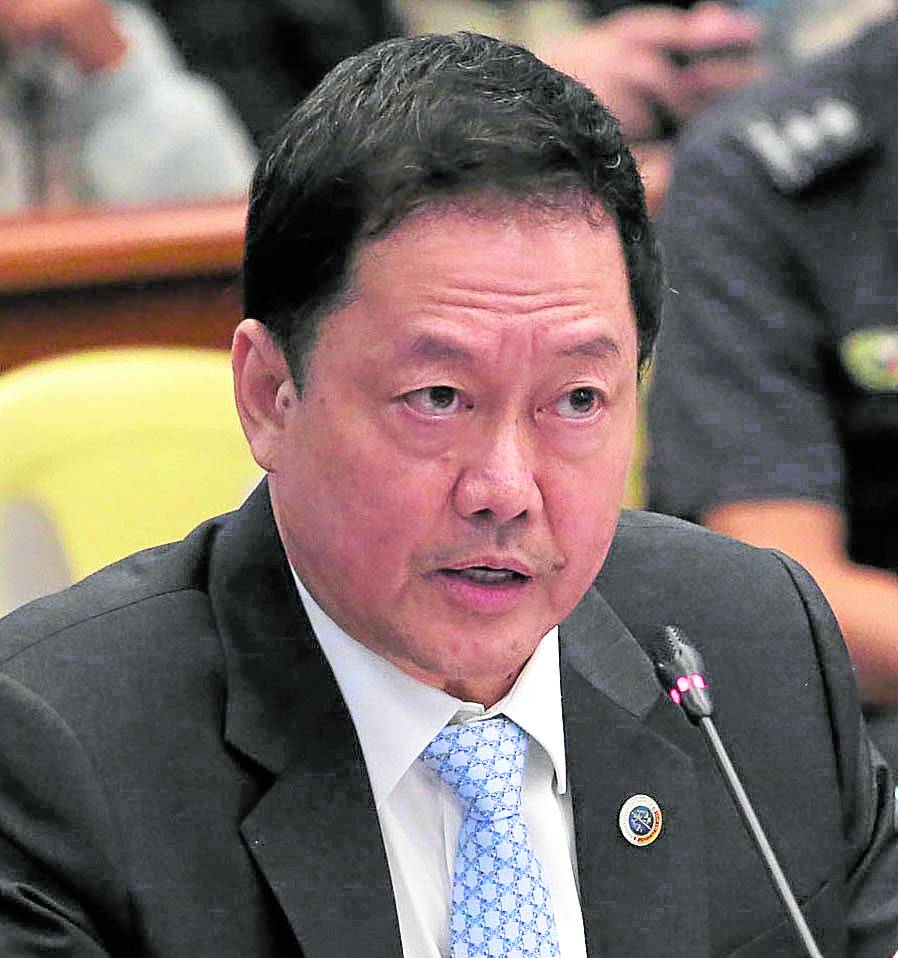DOJ to drop rules on junked terror provisions

Menardo Guevarra. FILE PHOTO
Although the government has yet to decide whether to appeal the Supreme Court’s nullification of some provisions of the controversial antiterror law, Department of Justice (DOJ) Secretary Menardo Guevarra said the rules on the junked provisions would automatically be removed from its implementing guidelines.
“It is expected that parties affected by the Supreme Court’s decision will file motions for reconsideration. So nothing is final yet as of this time,” Guevarra said.
“Assuming, however, that the ruling on the invalidated provisions would remain, the corresponding provisions in the IRR (implementing rules and regulations) will automatically cease to exist, too,” he said.
Guevarra said the IRR of the law, or Republic Act No. 11479, would have to comply with the high court’s ruling “without any action on the part” of the Anti-Terrorism Council (ATC).
On Tuesday, the justices ruled by a vote of 12-3 that Section 4 of the law flouted the Constitution “for being overbroad and violative of freedom of expression.”
The high court, voting 9-6, also declared unconstitutional Section 25 that authorized the ATC to unilaterally adopt the terrorist designations made by foreign governments or entities like the United Nations Security Council.
The high court has not released the text of its decision, but the lawyers who filed the 37 petitions—a record for the most appeals in a single case—against the law said they would appeal the ruling.
Some of the lawyers said the Supreme Court decision was “small victory” because it already nullified two provisions, but Evalyn Ursua, the lawyer for the journalists and artists who contested the law, thought that the Supreme Court decision meant a total defeat.
‘Scary, depressing’
“We don’t have a win there,” Ursua said at a news conference, a day after the high court announced the decision.
“I can think of two words: scary and depressing,” she said. “We may have a scary future with this and [it is] depressing because we trusted the SC to protect the people’s rights and freedom.”
She said the two provisions nullified by the high court were “useless” compared to the other sections that give the ATC other powers that used to be exercised by the courts.
Lawyer Howard Calleja, the first to file a petition against the law, agreed and said that while he might have called the decision a “small victory,” it was not really a cause to rejoice.
“Even if there was this decision from the Supreme Court, we are not totally happy with it,” he said in the same conference. “There are many provisions there, substantially, that what we believe would be able to violate human rights.”
The Department of the Interior and Local Government, however, welcomed the Supreme Court decision with Secretary Eduardo Año saying in a statement that the struck down provisions were only “minimal,” and would not affect the overall implementation of the law.
“While we await the release of the full decision, we welcome, respect, and acknowledge the decision of the Supreme Court that only two provisions of the entire law were struck down,” he said.